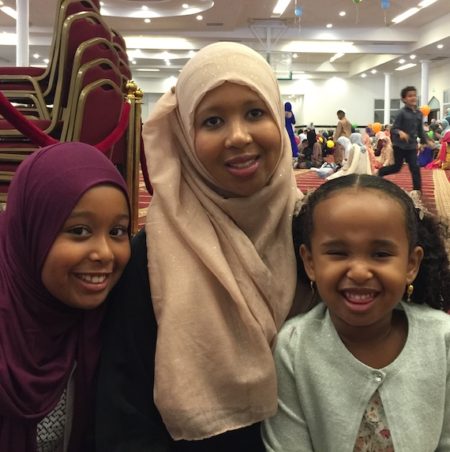Regina Elmi, co-founder of the Somali Parent Education Board (SPEB), recently sat down with WA Charters to discuss how SPEB is delivering on its mission to close the education gap by elevating parent leaders. WA Charters is proud to have SPEB as a community partner. SPEB’s partnership has been instrumental in helping to inform WA Charters approach to parent engagement.

What is the mission of the SPEB?
Our mission and main focus is to close the education gap by promoting parent leaders in the education system.
We believe that, to successfully meet the needs of Somali students, parents, educators and advocates need to be the agents of change that are committed to the advancement of the values of creating equality in the education system. This would involve changing previous approaches and taking a more direct approach to understanding the Somali students and their families’ needs. This would also involve educating and helping the Somali parents, the Somali youth, the schools and community members tap into their energies in order to allow a stronger collective approach to educating the students.
This is where SPEB comes in. We can be be instrumental in breaching the communication gap between the Somali parents and educators. We will start by addressing the need to reach out to the Somali parents so that we can build a strong partnership between schools and Somali parents – with the intent of providing equal and better educational opportunities for the students. Once that happens, we believe that we will see a positive change in the way Somali students and families perceive the education system.
As educators understand the lived experiences of the Somali families, only then will they be able to provide a competitive and adequate education that enables the Somali students to be successful and capable citizens within their communities and society at large.
How do you define true and authentic parent engagement?
Engagement is a term that we often hear being used in education circles. It is a lot easier to say than do, especially when referring to diverse parents. Some schools mistakenly believe they are practicing engagement when they host a town hall meeting or planning session. But it isn’t enough to have meetings where educators talk “at” parents instead of “with” them. Students become better when their parents and families are truly involved. Research indicates that students with involved parents have higher graduation rates, better attendance and more positive attitudes than students who don’t have parental support.
When all parents are treated a like, when they are given the proper space to occupy and are invited to be a part of the education circles and decision making tables, then they will be engaged and involved, this is what SPEB defines as true and authentic parent engagement.
Can you offer some examples of quality parent engagement have you seen in your work with public schools throughout the Puget Sound? What are those schools doing differently than the status quo?
The schools that are doing well are listening to the parents, and are involving them in the real issues that are being discussed and also inviting them to discussions before decisions that are about their children are made. They are being accessible, they plan activities in safe places and at times that are convenient for all parents, including their places of worship, the workplace, community venues and people’s houses. One size doesn’t fit all: parent/family interests and needs are as diverse as each individual student, and there isn’t a right way or only way. It is critical that efforts are kept relevant and are always culturally sensitive and aware, and the educators at these schools are making authentic spaces for the parents and are including them in the education of their children.
What are some positive changes that you see with schools that have taken on authentic parent engagement?
When schools take on authentic parent engagement, we have seen less disciplinary actions being taken against students, because parents were a parent of a preventative plan and not being notified at the last minute. We have seen grades get better, graduation and college acceptance rates increase, and most importantly, we see positive changes in the daily interactions between the students and educators.
What should all educators ask themselves when they start the work of engaging with diverse families?
Educators should engage with the community they are going to work with and bring in the parents to be part of the conversations – and also involve them in the decision making in a culturally appropriate way that is responsive and open minded. In our first annual community panel, SPEB brought together a committee of parents, educators and community members to really dive deep into the notion of authentic parent/family engagement and what it means. From that panel we understood the miscommunication that is widespread in the education circles. If you jump into activities without doing the research, analysis and planning first, you won’t get the desired results. True engagement requires a serious investment of time and commitment, along with creativity, innovation and a sincere willingness to listen and respond to parents’ and students’ needs.
